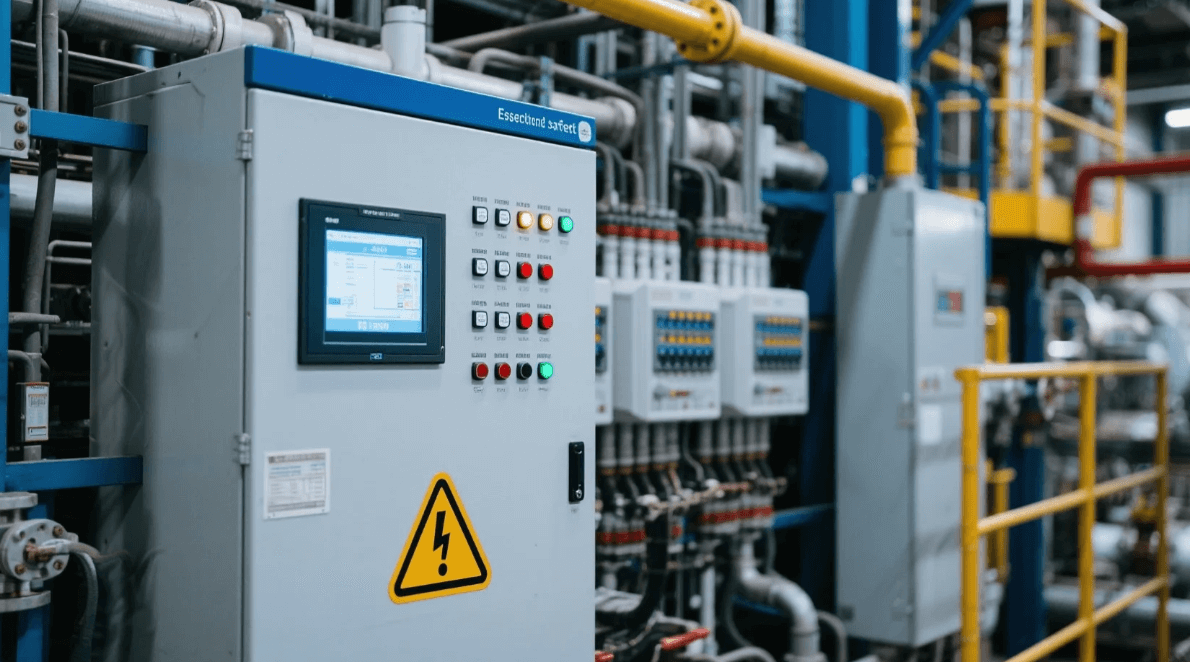ISSCA Техника безопасности в области управления электротехническими процессами и автоматизации

Introduction: Why Safety Technology Matters in Automation
In today’s fast-evolving landscape of industrial automation, safety and precision are paramount. As electrical process control systems grow increasingly complex, the demand for robust, reliable, and future-ready safety solutions has never been higher. This is where ISSCA Safety Technology comes into play. Known for its dedication to innovation, quality, and engineering excellence, ISSCA is setting new standards in electrical process control and automation safety.
This article explores how ISSCA Safety Technology is transforming the automation industry, delivering real value to professionals, engineers, and facility managers who rely on accurate, safe, and efficient systems.
The Core Advantages of ISSCA Safety Technology

1. Optimized Safety Protocols for Industrial Applications
ISSCA Safety Technology provides advanced solutions that prevent electrical faults, human errors, and operational downtime. Through layered protection and intelligent monitoring, ISSca reduces the risk of system failures, protecting both human operators and critical assets.
2. Seamless Integration with Process Control Systems
Integration is critical in automation. ISSCA solutions are engineered to work with leading PLCs, SCADA systems, and other control units. This compatibility simplifies upgrades and allows for real-time system visibility, making troubleshooting easier and faster.
3. Modular and Scalable System Design
As industrial facilities grow, their control and automation systems must adapt. ISSca supports modular system design, ensuring users can expand or reconfigure safety systems without overhauling existing infrastructure. This scalability reduces long-term costs and enhances ROI.
4. Reduced Downtime, Increased Efficiency
When safety systems fail, operations come to a halt. ISSCA’s precision-engineered components and redundancy measures ensure consistent uptime. That means fewer interruptions, faster diagnostics, and streamlined performance across entire operations.
Применение ISSca Safety Technology in Electrical Automation
1. Производственные и сборочные линии
ISSca is widely adopted in automated manufacturing lines where safety risks are high. Emergency stops, safety relays, and zone isolation technologies from ISSca offer both rapid response and system protection.
2. Power Distribution and Monitoring
In substations and electrical panels, ISSca systems monitor voltage, detect anomalies, and instantly respond to faults. This proactive safety management prevents overloads and short circuits before they escalate.
3. Chemical and Process Industries
Automation in hazardous environments like chemical plants requires specialized safety layers. ISSca’s flameproof enclosures, explosion-proof sensors, and safety-rated controllers offer secure operation under extreme conditions.
4. Building Automation Systems
From smart lighting to HVAC systems, ISSca Safety Technology is integrated into building automation to enhance both energy efficiency and operational safety.
Why Professionals Choose ISSca Safety Technology

Reliability Backed by Engineering
Each component developed by ISSca undergoes rigorous testing for durability, accuracy, and long-term performance in high-risk environments. Professionals trust ISSca because it consistently meets or exceeds global safety standards.
Future-Ready Technology
ISSca invests in continuous R&D, developing IoT-compatible and AI-enhanced safety modules. These innovations allow for predictive maintenance and data-driven safety decisions.
Compliance and Certifications
ISSca products meet international safety regulations including ISO 13849, IEC 62061, and ANSI standards. This ensures compatibility and compliance in both local and international markets.
Market Outlook and Future Prospects
With automation expanding into every industrial sector, safety technology is not optional—it is essential. ISSca’s dedication to innovation ensures that their solutions remain at the forefront of technological and regulatory change.
According to industry forecasts, the global market for industrial automation and safety solutions is expected to surpass $70 billion by 2027. ISSca is positioned to be a key player in this growth due to its adaptability, customer-focused design, and unwavering commitment to safety.
Core Differentiators of ISSca Safety Technology
- Ease of Integration: Designed for plug-and-play compatibility.
- Highly Customizable: Offers tailored solutions for different industrial needs.
- Energy-Efficient: Built with low-power components to minimize environmental impact.
- Comprehensive Support: Technical assistance and consulting available worldwide.
Real-World Benefits for Automation Users
Lower Operational Risk
Engineers and automation managers using ISSca report lower incidents of unplanned downtime and fewer safety-related interruptions.
Improved System Transparency
With cloud-ready diagnostics and real-time alerts, ISSCA ensures managers have immediate access to critical safety metrics.
Long-Term Cost Efficiency
Initial investments in ISSCA systems pay off with reduced maintenance, lower energy usage, and extended equipment life.
Часто задаваемые вопросы (FAQ)
Q1: What industries benefit most from ISSca Safety Technology?
A1: Manufacturing, energy, chemical processing, and infrastructure all benefit significantly from ISSca solutions.
Q2: Can ISSca Safety Technology be retrofitted into existing systems?
A2: Yes, ISSca products are modular and designed for seamless integration into current automation infrastructures.
Q3: Does ISSca support international compliance?
A3: Absolutely. ISSca systems are certified under ISO, IEC, and ANSI standards.
Q4: How does ISSca help reduce system downtime?
A4: Through predictive diagnostics, smart alerts, and redundant design, ISSca significantly minimizes unexpected failures.
Q5: Is ISSCA suitable for Industry 4.0 applications?
A5: Yes, ISSCA is already developing AI-enabled safety modules and IoT-compatible platforms ideal for smart factories.
Заключение
ISSCA Safety Technology is not just a tool—it’s a strategic asset in the electrical process control and automation industry. With its robust design, intelligent features, and unmatched adaptability, ISSCA stands out as a trusted partner in building safer, more efficient, and future-ready systems.
Model:NBB2-12GK60-E2-5M PUR

